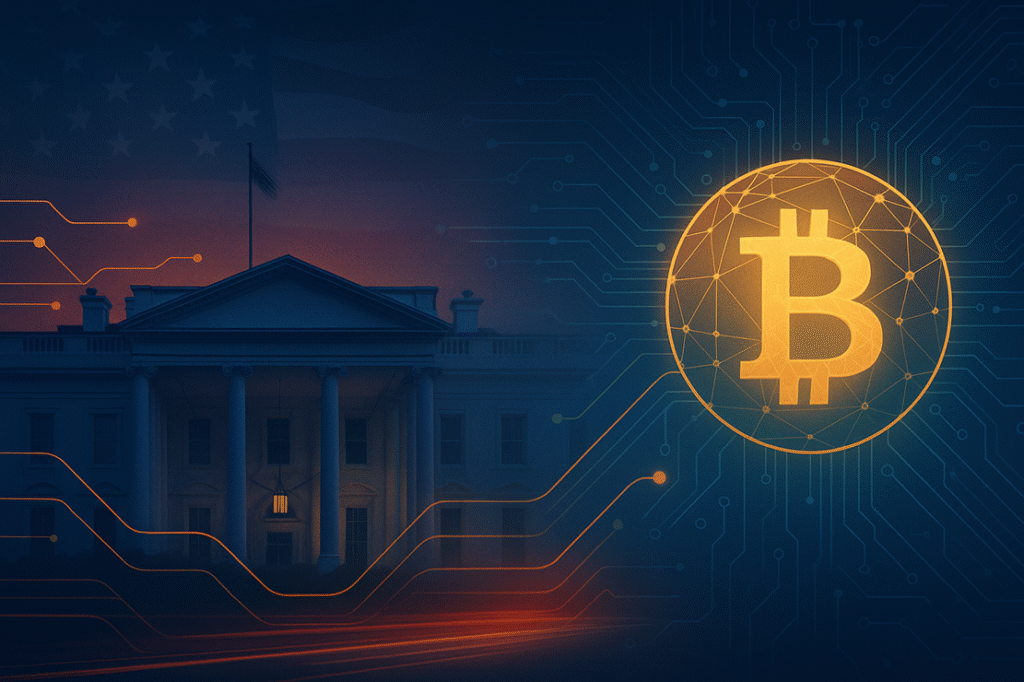In an era where financial innovation is reshaping global economies, the intersection of cryptocurrency and government policy garners increasing attention. Recently, changes at the White House have highlighted the importance of strategic leadership in navigating this complex landscape. As cryptocurrency becomes an engine for economic growth, expert guidance is crucial to harnessing its full potential. The following content examines the recent developments in U.S. crypto policy, providing insights into the individuals and strategies shaping the future of digital assets.
Leadership Change in the White House’s Crypto Strategy
Introducing Patrick Witt: The New Face of Cryptocurrency Policy
With Bo Hines’ unexpected departure, the Trump administration swiftly appointed Patrick Witt to lead the charge in crafting crypto policy within the White House. Witt steps into this role with an impressive background, holding the position of Executive Director of the President’s Council of Advisors for Digital Assets while concurrently serving as Acting Director of the Pentagon’s Office of Strategic Capital (OSC). Unlike many in the crypto sphere, Witt is not known for social media influence; instead, he brings a wealth of experience in policy and national security to the table.
Witt’s views on Bitcoin and the broader digital asset ecosystem were articulated during his sole public appearance at the Bitcoin Policy Summit. Here, he discussed the Strategic Bitcoin Reserve (SBR), seeing it not as a speculative venture but as a crucial component of statecraft. He emphasized that cryptocurrencies could significantly contribute to economic development and expressed the administration’s desire for the U.S. to lead in this domain. Witt underscored the need for a robust policy framework to guide the accumulation and utilization of this reserve.
Strategic Vision and Execution: The Role of the Office of Strategic Capital
As Acting Director of OSC, Witt leverages his expertise to foster investment in strategic technologies, aiming to rejuvenate industrial capabilities. Initially armed with $984 million for lending, OSC has seen its capacity expand dramatically, with potential growth on the horizon, contingent upon legislative support. The demand for funding has been overwhelming, reflecting the critical need to support cutting-edge initiatives that intersect with both Bitcoin and broader crypto infrastructure.
Witt advocates for securing domestic energy supplies and computational power, essential elements for sustaining the crypto ecosystem. This strategy aligns with the broader vision of integrating digital assets into the national security framework, ensuring that the U.S. maintains its competitive edge.
Bitcoin’s Role Within National Security: The Softwar Thesis
Witt’s strategic approach to Bitcoin resonates with Major Jason Lowery’s “Softwar” thesis, which posits that Bitcoin’s proof-of-work represents a non-kinetic deterrence mechanism. Although Witt has not directly cited Lowery, his language echoes these ideas by framing Bitcoin as a tool of modern statecraft and emphasizing the importance of domestic mining. He asserts that capital markets and public credit can be instrumental in bolstering national security through energy and computing advancements.
Community reactions to Witt’s dual roles have been mixed, with some stakeholders recommending an exploration of Lowery’s theoretical framework as a complement to current policy strategies. Whether or not the administration fully adopts the Softwar perspective, Witt’s policy actions suggest an infrastructure-driven approach to integrating Bitcoin into national strategy.
FAQs
What is the Strategic Bitcoin Reserve (SBR)?
The Strategic Bitcoin Reserve (SBR) is a policy initiative aimed at accumulating Bitcoin to leverage its potential as a statecraft tool, enhancing economic growth and securing a strategic advantage in the emerging digital financial system.
How does Patrick Witt’s role as Acting Director of the OSC influence crypto policy?
As Acting Director of the OSC, Patrick Witt plays a critical role in allocating federal funds to bolster strategic technologies. His dual focus on crypto and national security allows for a coordinated effort to integrate digital assets into broader economic and security frameworks.
Is Bitcoin considered critical infrastructure by the U.S. government?
While not officially designated as critical infrastructure, recent policy movements suggest a strategic pivot towards treating Bitcoin as an important component of national economic and security strategies. This includes exploring its use in statecraft and supporting infrastructure through public credit initiatives.

